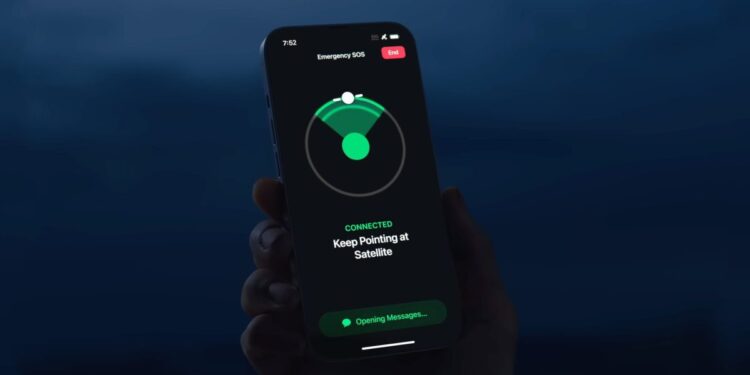Apple is working with Globalstar on satellite technology, and in a new FCC filing, Globalstar has mentioned developing the iPhone’s satellite Internet features.
to report TeknakLast fall, with the introduction of the iPhone 14, Apple introduced a new feature called Emergency SOS via satellite, which allows users to call emergency services without a cellular connection and send short text messages.
Just before Apple’s announcement, T-Mobile and Starlink also teamed up, announcing vague plans to bring Starlink direct connectivity to existing iPhone and Android devices. In another FCC filing, T-Mobile wrote: “Today’s consumer devices do not support MSS (Mobile Satellite Service) signals. Through their partnership, SpaceX and T-Mobile offer additional coverage from space, or SCS.”
As T-Mobile and SpaceX have explained, SCS is very attractive because it works on the devices that today’s consumers use; They will simply receive a satellite signal using the same devices in areas where a terrestrial signal is not available. While public interest may justify the use of spectrum allocated for MSS use, today’s consumer devices do not support receiving MSS signals.
In a new file created by PCMag Seen, Globalstar has objected to T-Mobile’s claims that today’s consumer devices don’t support satellite connectivity using MSS.
Globalstar already supports direct-to-device MSS for emergency communications in mass market consumer devices and has brought enormous public benefits around the world, including in rural and remote areas. In 2022, Apple introduced Globalstar’s MSS satellite emergency calling feature directly to the iPhone 14 device, which is now available to iPhone 14 device users.
Apple’s Satellite Emergency Call feature allows users to initiate emergency communications through MSS transactors on these devices and supports two-way messaging communications between the user and public safety personnel. Since its introduction, the feature has It has saved hundreds of lives.
Globalstar goes on to claim that by using MSS, it will be able to improve the implementation of satellite technology in the future.
Globalstar’s MSS system will be enhanced over time to support a growing set of features and direct-to-device services that are within the company’s license spectrum, the company says. Ultimately, hundreds of millions of people around the world will have the ability to connect to Globalstar on their devices when critical connectivity is needed and no terrestrial network is available.
In light of this, Globalstar is also asking the FCC to ensure that SCS does not cause harmful interference to other satellite systems, both inside and outside the United States.
Teknak opinion
It’s no surprise to hear that Globalstar has confirmed plans to continue investing in satellite connectivity features for iPhone users. Finally, Apple itself has invested $450 million to support infrastructure and develop satellite connectivity. A significant part of this investment is directly allocated to Globalstar.
Interestingly, Globalstar’s response has been sent to T-Mobile and Starlink, which plan to provide satellite internet connectivity to smartphone users. Is Globalstar hinting at plans to offer the same capability using MSS technology? It seems so.
Currently, the Satellite Emergency Call feature supports the ability to send short text messages, share location data, and call emergency services. The feature is free for two years, and after that period, Apple is likely to plan its own subscription program for the feature. If the satellite features include Internet connection and phone calls, the idea of paying a fee becomes more attractive.
The writing of Apple’s plan to develop satellite internet for iPhone phones was first published in TechNock – News of the world of technology. appeared.


















گفتگو در مورد این post